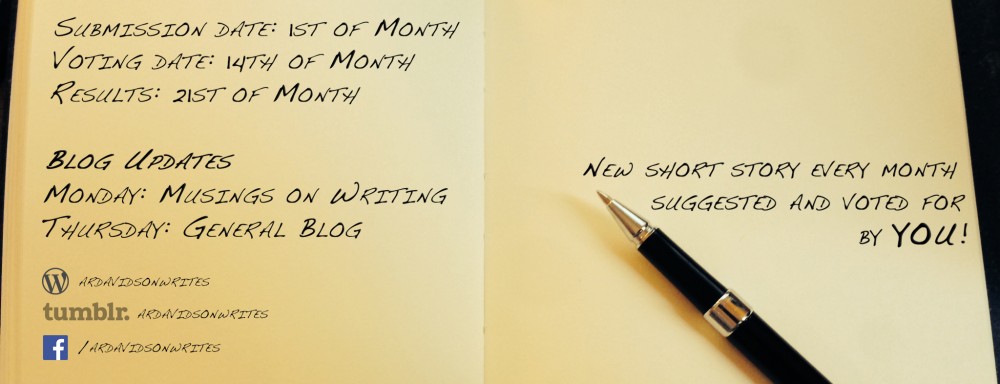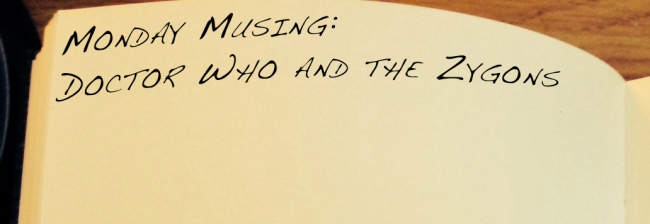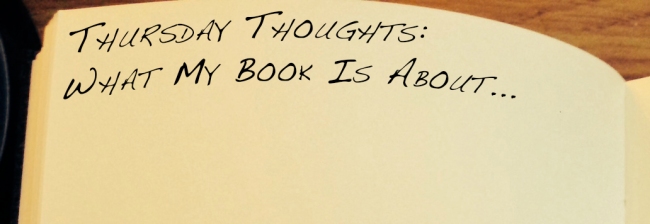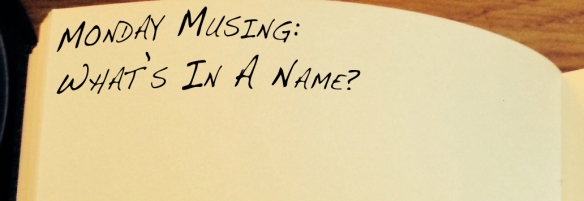Hello,
A bit of a different Musing today. This is not a critical analysis of the Doctor Who special on Saturday 23rd, but explores one element of it in relation to storytelling. There will be spoilers if you’ve not seen the episode.
At the end of the episode whilst talking about it with a friend she asked me what had happened with the Zygon subplot story. Here’s the thing: thematically it’s completely resolved as part of the larger story. Literally it is completely ignored. I’m not sure which side of the fence I am on about it.
Thematically the story of the Zygons attempting to take over Earth and UNIT Lady’s choice to destroy them all to stop that from happening is the mirror of The War Doctor’s choice to sacrifice all of Gallifrey to destroy the Daleks. It’s basic, but effective, storytelling. As a result The Doctor, who is rarely willing to allow such decisions to be made again steps in and forces a situation whereby the problem is averted by making the Humans and Zygons forget if they are one or the other. Jump to all the Doctor’s realising there is another option to save Gallifrey that will make it appear to have been destroyed but totes not really. At this point, we follow the Doctors as they set about saving Gallifrey. The only hint we have of the Human/Zygon situation is when Cute Scarf Glasses (I’m sure she had a character name) and the Zygon work out which is which but keep it a secret. The implication being that peace would be better than destroying themselves. Following the thematic thread you can assume that the Human/Zygon thing was similarly resolved and everyone was happy.
From a story point of view, the story is left hanging. The Zygon story wasn’t just a frame that the main story was set around it was both the launch point of the main story and vital to its resolution. It was also dramatically interesting in of itself with many characters and situations set up, many resolved or explained, the early phone call for instance. Yet suddenly it is completely dropped in favour of the A story and not returned to. We don’t find out what happened to UNIT Lady or Cute Scarf Glasses (I should probably IMDb this), or how that story was resolved. We’re left to assume that it all worked out fine.
So which is the better option? Our stronger emotional investment is with the Doctors and the Zygon B story is a facet of that story, but can we be satisfied if a story is started, taken to a stalemate situation and then abandoned? The economies of time on television are maybe to blame here.
I’ve said before that I’m quite happy with ideas or narratives being taken to a point before leaving it to an audience to decide for themselves elements of the story (how they feel about it/what it meant/etc), but I’m not sure that I like a story or story element having no resolution at all. Yes, it could be something they will return to in the future, but within the construct of the episode it isn’t addressed at all.
I think it’s an interesting story choice, and something I’ve been thinking about over the weekend.
If you saw the episode what are your thoughts?
If you didn’t watch it, I’m sorry for this Doctor Who based blog.
– Andrew








